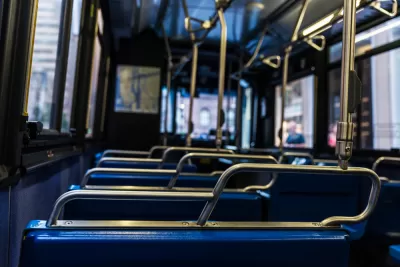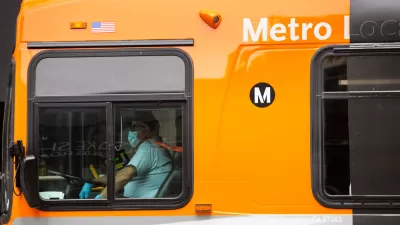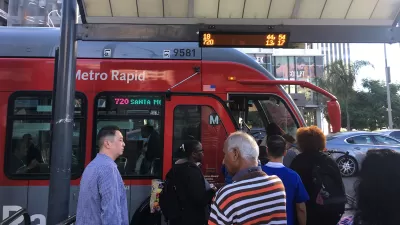“The biggest US transit agencies must be allowed to simply focus on delivering high-quality service. There is no Plan B.”

An article by David Zipper for Vox provides one of the most detailed accounts yet of the crisis facing public transit because of reduced ridership and revenues coming out of the pandemic. “Few parts of the American economy were upended by Covid as much as public transportation,” according to Zipper. As a result, the current crisis has the “potential to decimate their service, cripple local economies, and diminish quality of life.”
To escape the crisis, Zipper writes that “transit leaders must offer a full-throated defense of their essential role in American life. They must then secure new and reliable revenue streams from state and regional sources, which will require convincing residents and legislators that transit is worthy of subsidy — not an easy thing to do in a country where the vast majority of people don’t ride the bus or train.”
“The only realistic way for transit officials to garner public support for the funding they desperately need is to demonstrate an ability to replace car trips, not just serve economically disadvantaged people who lack other means to get around their city,” adds Zipper. The pro-transit arguments that resonate most with the public, according to Zipper’s argument, are “curtailing congestion, reducing auto emissions, and boosting economic growth.”
The potential for transit trips to replace car trips cannot be achieved by fare-free transit programs nor other “distractions” such as electric buses. In fact, Zipper argues that transit agencies must be encouraged to redistribute funds intended for large capital investments, such as new rail lines and new buses, to programs that increase service with existing resources.
Key to the argument is an effort to dispel the notion of fare-free transit as a solution for the current, post-pandemic era. Eliminating fares sends transit in the wrong direction, according to Zipper, by requiring “transit systems to find even more outside funding to be able to function, making it harder to provide high-quality service.” Zipper isn’t the first to argue that free fares are a setback rather than a boon for public transit—an article by Jerusalem Demsas in 2022 and an article by Steven Polzin in 2018 made the same arguments.
Instead of increasing the costs of transit, agencies and their partners at various levels of government should be focused on “establishing recurring sources of funding,” according to Zipper, such as, for example, New York City’s congestion pricing plan, “which will charge motorists up to $23 to enter Manhattan’s central business district and add around $1 billion annually to MTA’s capital budget….”
A lot more detail on how transit arrived at this crisis (with a history that dates well back into the 20th century) and more nuance on Zipper’s arguments are available to read in full at the link below.
FULL STORY: How to save America’s public transit systems from a doom spiral

Pennsylvania Mall Conversion Bill Passes House
If passed, the bill would promote the adaptive reuse of defunct commercial buildings.

Depopulation Patterns Get Weird
A recent ranking of “declining” cities heavily features some of the most expensive cities in the country — including New York City and a half-dozen in the San Francisco Bay Area.

California Exodus: Population Drops Below 39 Million
Never mind the 40 million that demographers predicted the Golden State would reach by 2018. The state's population dipped below 39 million to 38.965 million last July, according to Census data released in March, the lowest since 2015.

Google Maps Introduces New Transit, EV Features
It will now be easier to find electric car charging stations and transit options.

Ohio Lawmakers Propose Incentivizing Housing Production
A proposed bill would take a carrot approach to stimulating housing production through a grant program that would reward cities that implement pro-housing policies.

Chicago Awarded $2M Reconnecting Communities Grant
Community advocates say the city’s plan may not do enough to reverse the negative impacts of a major expressway.
City of Costa Mesa
Licking County
Barrett Planning Group LLC
HUD's Office of Policy Development and Research
Mpact Transit + Community
HUD's Office of Policy Development and Research
City of Universal City TX
ULI Northwest Arkansas
Town of Zionsville
Urban Design for Planners 1: Software Tools
This six-course series explores essential urban design concepts using open source software and equips planners with the tools they need to participate fully in the urban design process.
Planning for Universal Design
Learn the tools for implementing Universal Design in planning regulations.


























